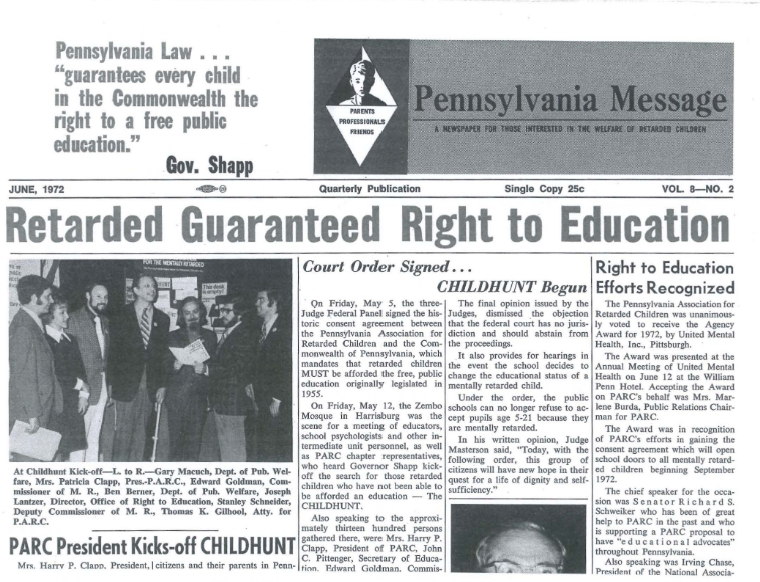
"Retarded Guaranteed Right to Education," Pennsylvania Message: Courtesy of the ARC collection, June, 1972
PARC v. Pennsylvania:
Pioneering the Right to Education for Children with Cognitive Impairments

"Retarded Guaranteed Right to Education," Pennsylvania Message: Courtesy of the ARC collection, June, 1972
On May 5, 1972, the stipulation and consent decree were approved and adopted.
Together, these documents made PARC v. Pennsylvania the first right-to-education lawsuit to require that school districts provide a free public education to all cognitively impaired children.
Additionally, the PARC settlement conceived two crucial special education principles. First, that the education provided by the state must constitute a free appropriate public education (FAPE). Second, that students with cognitive impairments must receive a FAPE in the least restrictive environment (LRE).
These legal rights continue to shape the field of special education and ensure that cognitively impaired students receive the education afforded to them under the Constitution of the United States.
Parents' experiences with the Pennsylvania school system changed dramatically after the PARC v. Pennsylvania settlement.